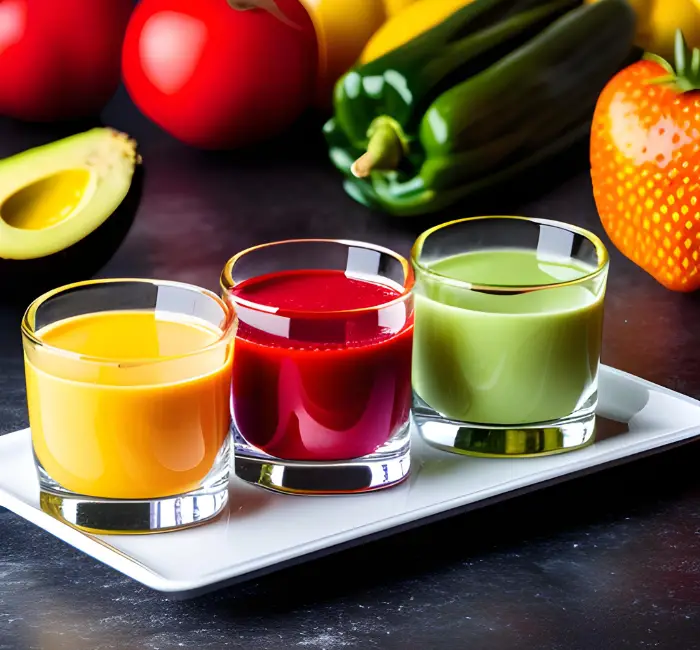
Discover expert-guided juicing, smoothies, beverages, and shakes for a vibrant and healthy lifestyle.

Juicing
Explore a world of revitalizing flavors and health benefits with our juice page. Uncover cleansing programs, mouthwatering recipes, and top juicer brands for your ultimate juicing experience.

Smoothies
Indulge in a world of refreshing blends bursting with natural flavors and nourishing ingredients. Explore our collection of vibrant smoothie recipes designed to invigorate your senses and support your well-being goals.

Beverages
Indulge in rich flavors and refreshing sips with our diverse selection. From aromatic brews to soothing infusions, explore a world of beverages that awaken your senses and quench your thirst for delightful experiences.

Shakes
Indulge in creamy delights with our Shake Tips and Guides. Explore mouthwatering milkshake recipes and fuel your fitness goals with protein-packed shake ideas. Elevate your beverage game with us.
How It Works
Learn about juicing, smoothies, beverages, and shakes through our expert content. Compare options, from recipes to equipment, with our detailed guides. Finally, decide on the best choices for your health and wellness journey. Empower yourself with knowledge and make informed decisions at Juicer Advice Hub.
Guides and Resources
Not sure where to start? Read our latest articles….
- Top Picks for the Best Smoothie Blenders in 2024
- Tonic Water, Purines, and Me: Understanding the Connection
- 5 Ways Pineapple Juice Can Help Relieve Bloating
- Is pineapple juice safe to drink during the third trimester?
- 6 Benefits of Pomegranate Juice for Weight Loss
- 5 Benefits of Lime Juice for Diabetics
- Is Grape Juice High in Iron? The Answer May Surprise You
- How to Whiten Teeth with Lemon Juice and Salt: A Step-by-Step Guide
- 3 Ways to Make Jamaican Carrot Juice | The Spruce Eats
- 4 Signs You’re Drinking Too Much Pineapple Juice
Searching for Juicing Excellence?
Chances are you’ll find it here at Juicer Advices…
